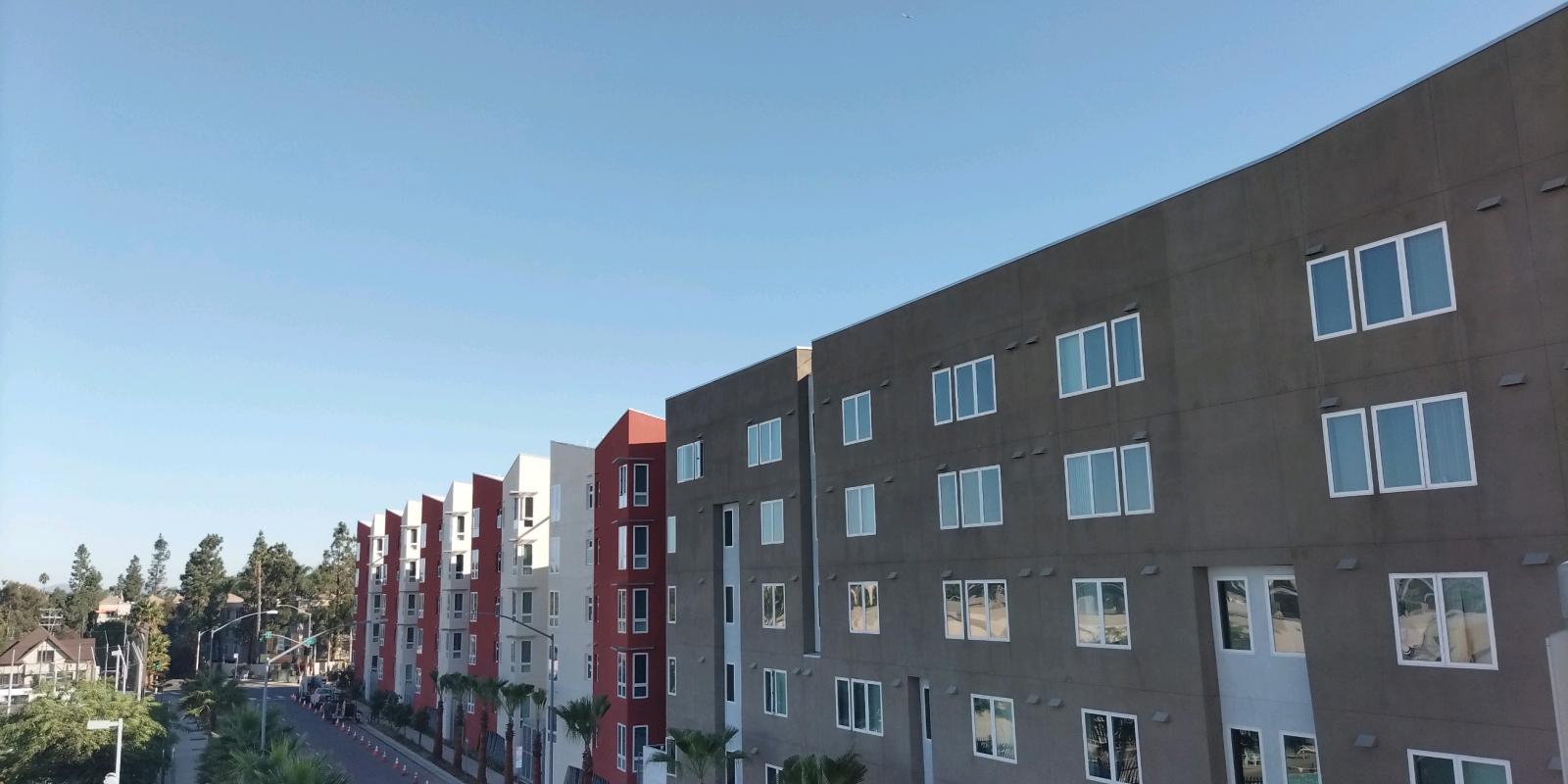Headlines continue to sound the alarm about our nation’s homelessness problem, particularly in urban areas. It’s hard not to be discouraged by increasing numbers of unhoused people living in cars, in parks or on our streets. It seems as quickly as one small solution to the puzzle adds to our available housing stock, the people who successfully find housing are replaced by an even larger number of new people who need housing.
At Serving Seniors, a San Diego-based nonprofit offering supportive services to low-income and homeless older adults, we see the frustration building among residents, business owners and civic leaders struggling to comprehend the problem and develop solutions. When we learned through our 2021 Serving Seniors Needs Assessment that one in four of our region’s adults experiencing homelessness is ages 55 or older, we knew we needed to double down on our efforts to go beyond providing for immediate needs such as meals, social activities and personalized case management.
In the long term, affordable housing is vital to achieving a lasting solution to older adult homelessness. It was no small celebration when our Harris Family Senior Housing in San Diego’s midtown City Heights neighborhood (pictured above) held its ribbon cutting on Nov. 14, providing 117 apartments for older adults. In 2023, Serving Seniors will break ground on the first phase of an exciting 174-unit senior housing complex in San Diego’s suburban Clairemont neighborhood. In both cases an apartment or unit is one-bedroom, and also suitable for couples. The Clairemont property will include a senior center for the community.
Yes, it takes time to guide these projects from start to finish. But there’s reason for those of us concerned about this issue to have optimism in 2023.
Serving Seniors has pressed our elected and appointed representatives to act with a sense of urgency to develop programs that address older adult homelessness. They are responding with initiatives that don’t require years of construction or planning.
‘Targeting the economic forces causing older adult homelessness can help people quickly.’
Economic forces such as insufficient retirement income, unaffordable housing options, the inability to continue working, or a single unexpected crisis such as a job loss or serious illness are the primary drivers of homelessness among older adults.
Targeting the economic forces causing older adult homelessness can help people quickly, allowing us to focus remaining resources on those who need more significant help.
Preventing Homelessness and Providing Temporary Bridge Shelters
Two new pilot programs addressing the prevention of older adult homelessness will get underway in 2023 at the County of San Diego and the City of San Diego. Both implement a “shallow rental subsidy” approach, using small monthly stipends to avoid evictions instead of struggling to shelter people after the fact. Not only can this approach provide a more humane solution, but it saves money. Compare the cost of a proposed $500 monthly subsidy with emergency shelter operating costs of between $2,500 to $6,000 per person monthly, depending upon the type of services offered.
Similar programs have proven successful in Kings County, Wash.; Oakland, Calif.; the Department of Veterans Affairs (VA); and the Salvation Army, which has prioritized 20% of its funding to adults ages 55 and older.
Establishing small non-congregate shelters to provide temporary bridge housing shows great promise for older adults and other populations of people who are unable to navigate traditional congregate shelters. Serving Seniors is operating the new Senior Landing Bridge Shelter in collaboration with the City of San Diego. It provides 33 rooms of stable, safe lodging for older adults experiencing homelessness who are awaiting permanent housing placement. These units are in addition to the 30 transitional units Serving Seniors’ master leases at the Sara Frances, a single room occupancy (SRO) residence.
We know a hard push for affordable housing is the end goal, but people need help now. We have a golden opportunity to address several easily preventable problems through targeted leveraging of existing resources.
Demographics are working against us. The number of homeless adults older than age 55 is projected to triple over the next decade. In cities like San Diego, the problem is growing. For every 10 people who are successfully housed, 13 more people become unhoused. This is not sustainable, and it certainly is not humane.
As their neighbors, it is incumbent upon us as individuals to take direct action. Writing letters to the editor about the need for more affordable housing—and then opposing projects in one’s own neighborhood—simply is not good enough. Americans are better than this.
Homelessness takes a long-term toll beyond shivering on the sidewalk trying to find a safe place to sleep. It can be overwhelming to navigate unfamiliar bureaucracies for help. Many people who are employed or in school when they lose housing struggle to maintain their bearings—or to hide their shameful circumstances. They become estranged from family and friends, and their physical and mental health suffers. Even when supportive housing is available, it takes time to secure placement. Shallow rental subsidies can support income and buy time to find suitable rentals for permanent housing, helping individuals regain their footing and independence.
Instead of looking away when you pass a person experiencing homelessness, look them in the eye, say hello, and acknowledge them as a person. Imagine them as someone’s parent, child, brother or sister, or former co-worker. Compassion is a critical first step. Use it as motivation to join the cause and support organizations like Serving Seniors, which are working diligently to hold back the rising tide of homelessness.
Paul Downey is the president and CEO of Serving Seniors in San Diego and a former ASA Board Member.
Photo: Harris Family Senior Housing facility in San Diego.
Photo credit: Courtesy Serving Seniors













